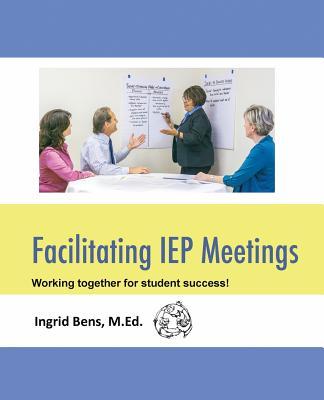Individualized Education Program Meetings are vitally important!
They represent the opportunity for educators and the families of children with special needs to collaborate on the development of a customized education plan.
Fortunately, most IEP meetings run smoothly and result in programs that are effective and have the full support of both educators and family members. Sadly, a small percentage of these meetings are challenging.
When challenges occur, IEP meetings can quickly go from being positive and cooperative to being contentious and stressful. That's why there is a need to equip staff with needed facilitation tools and technique.
What's inside?
- an overview of facilitation basics, definitions, the essential core practices, tips about when and how to assume the neutral role
- chapters on decision-making tools and the effective use of questions
- dozens of process tools that bring structure and cohesion to conversations
The core of this book is organized around the specific facilitation tools that have been found to be effective at each of five distinct stages in the development of Individualized Education Programs.
For each stage, there's a short description of the purpose of that stage, the activities conducted and the challenges commonly encountered. For each stage, there's also a list of the most commonly made mistakes, the best practices and the facilitation tools that can be used to achieve optimal results.
Once you start applying these tools, you'll find that you won't want to run your Individualized Education Plan meetings without them!
